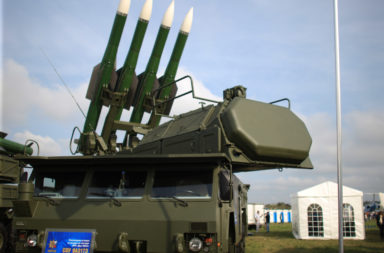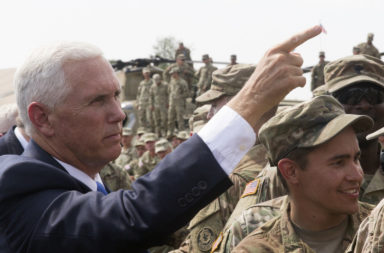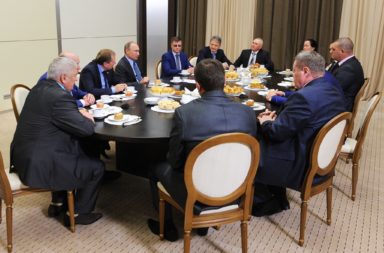Most people would concede, if asked, that the main focus of their news intake for the past few weeks has been, unquestionably, Donald Trump. Yet while his ban on migrants, and numerous executive orders, have taken centre stage, Putin’s media machine in Russia has begun a new campaign pushing his agenda in the Ukraine, with the EU bearing the brunt. What shape will this new phase of aggression take? And how will the EU and Trump react?
- Russian media rounds on Kiev and Brussels.
- Merkel calls for a ceasefire.
- Trump promises to de-escalate tensions in the region.
Donald Trump has been making headlines around the world, understandably. This includes Russia, where Trump is popular due to his stance favouring friendly relations with Putin. However, it was reported on Sunday that many of the popular news mediums in the country changed their focus to the conflict in the Ukraine. The violence in the east of the country in recent weeks taking precedence along with damning verdicts on those to blame.
Dmitry Kiselyov, Putin mouthpiece and host of “Vesti Nedeli,” proclaimed that the atrocities of the civil war in the Ukraine had been committed by the “Nazi volunteer battalions” of the Ukrainian government. Kiselyov then went further. He claimed that it was not Russia who had used hacking to interfere in the US election but the Ukraine.
He may in fact have been emboldened by comments from Putin himself. The Russian President suggested during a press conference in Budapest, with Hungarian Prime Minister Viktor Orban, that Poroshenko had backed only Hillary Clinton during the US elections, leaving himself distanced from the new administration.
The rekindled relationship with Hungary was another opportunity to pour scorn on the EU. Many networks contained segments in which Hungarians denounced the EU’s sanctions against Russia as “immoral and counterproductive” and waxed lyrical about the the good times of socialist Hungary.
Merkel Urges Putin to Call Ceasefire
As the violence in the Ukraine continues, Merkel spoke with the Russian President, on Tuesday, in an effort to organise a ceasefire. It is said that the two leaders agreed to renew efforts to bring about peace in the region.
“The German Chancellor and the Russian President agreed that new efforts must be made to secure a ceasefire and asked foreign ministers and their advisers to remain in close contact,” government spokesman Steffen Seibert said.
Whether Putin will follow through with this agreement remains to be seen, as his interests may lie elsewhere. Indeed there is concern in Kiev that Donald Trump may lift the Russian sanctions imposed by the Obama administration, shifting the balance in Russia’s favour. If this were to happen, there is no reason Putin would need to take such a backward step.
The Kremlin’s statement on the phone call with the Chancellor was more ambiguous: “serious concerns were expressed in connection with the escalation of the armed conflict resulting in human losses”.
What action will Trump take?
It is well known that the new President of the US favours stronger ties with Russia and a general improving of relations between the two countries. However, it emerged recently that Trump had promised to restore peace after a phone call with the Ukrainian President Petro Poroshenko.
This should indeed be seen as a boon for the EU and those backing the government in Kiev. The EU has been dealing with a number of internal issues of extreme importance. This includes the UK’s imminent withdrawal and a number of upcoming elections that could potentially throw the union into disarray. Trump’s implicit endorsement of Poroshenko will therefore go some way to calming those with western interests in Ukraine.
So while the intentions of Putin in the region, evident in the recent propaganda, seem increasingly sinister, there is the potential for Trump to be a true mediator in the conflict, given that he has lines of communication with both sides. Yet, as with all matters concerning Trump, what he says must be taken with a grain of salt and the best outside observers can do is hope.
Unfortunately, to many pundits, the timing of the recent increase of violence in Ukraine – days after a phone call between Trump and Putin, shows that the US President’s influence on Russia’s decision making to be nothing but fantasy.





